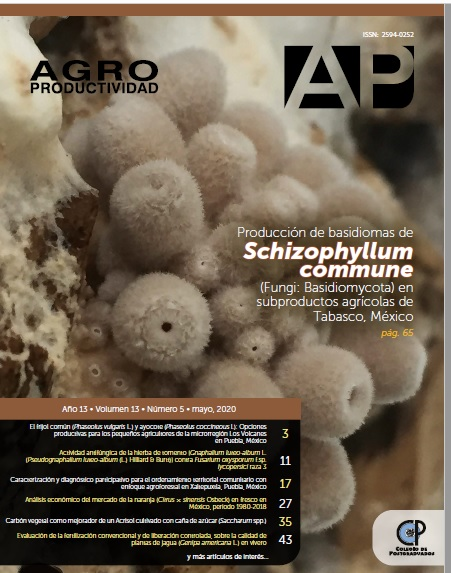Charcoal as improvement of an Acrisol cultivated with sugarcane (Saccharum spp.)
Main Article Content
Keywords
Charcoal residue, coal, biochar, Acrisol, soil degradation
Abstract
Objective: To analyze the effect of the addition of charcoal residues on physical and chemical properties of an Acrisol cultivated with sugar cane in the savannah of Huimanguillo, Tabasco, Mexico.
Design/methodology/approach: Unmarketable waste charcoal were used, from the company "El Cocoite", from Villahermosa, Tabasco, Mexico. An incubation with charcoal mixed with 300 g of soil was performed for different treatments: 0, 1.2g, 1.8g, 2.4g, 3.0g, 3.6 g, 4.2 g and 4.8 g. Two samples were made at 45 and 90 days, in each sample the soil moisture (SM), bulk density (Bd), pH (H2O), organic carbon (OC), C / N, cation exchange capacity was measured (CEC), exchangeables bases, and exchangeable acidity were evaluating.
Results: The soil was improved in physical properties: by increasing soil moisture and keeping an appropriate Bd. The chemical properties such as CO, pH, CIC, Ca 2+, Mg 2+ Na+ and K+, were improved, and the exchangeable acidity reduced.
Limitations/study implications: Low crop yield in Acrisols used for sugar cane cultivation, limit the sustainability of this high economic impact agricultural activity in the Southeast of Mexico.
Findings/conclusions: This would help improve the availability of plant nutrients in the Ferric Acrisol cultivated with sugar cane.

